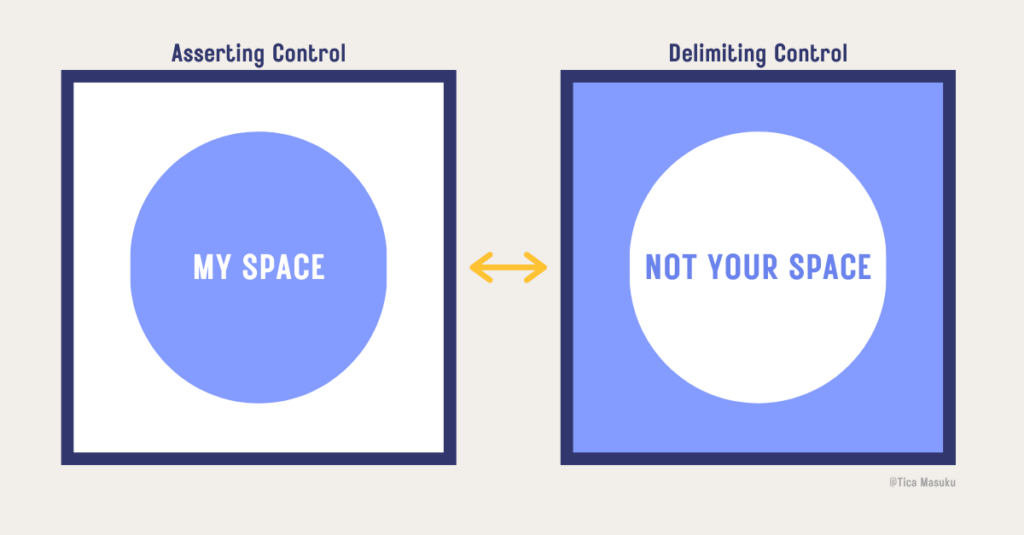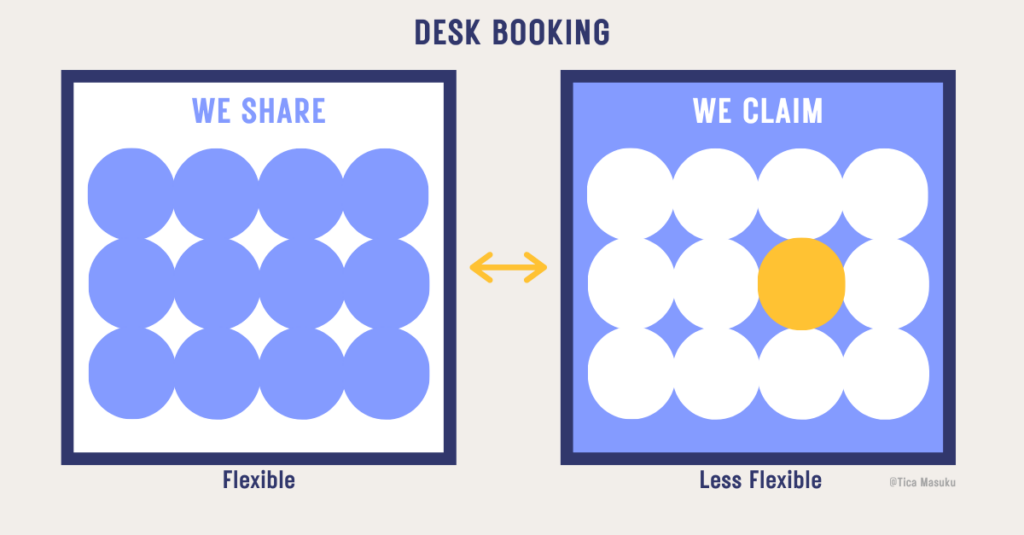
Territoriality in the Workplace
The main endeavour of human geography is to understand the interrelationship between people and their spatial environments. A fascinating aspect of this relationship is the concept of territoriality in human beings – the desire for control over geographic space. At a macro level, we are seeing this play out in the world right now from […]
The main endeavour of human geography is to understand the interrelationship between people and their spatial environments. A fascinating aspect of this relationship is the concept of territoriality in human beings – the desire for control over geographic space. At a macro level, we are seeing this play out in the world right now from a geopolitical perspective. Let’s explore how this territorial tendency plays out at the micro-level of the workplace.
The Concept of Territoriality through the Lens of Human Geography
Robert David Sack, a prominent geographer, defines territoriality as “the attempt by an individual or group to affect, influence, or control people, phenomena, and relationships, by delimiting and asserting control over a geographic area.” (1) Based on this description, we can identify two important social tendencies that bolster territoriality:
- Asserting control: The wish by people to have space of their own. Think about the concept of the home. Many homeowners put a mark on their home environment through personalised furnishings, plants, art and colour schemes. Even within the home, there can be a distinction and gradation of the level of access to geographic space (2): close friends and family may have access to roam more freely and access more rooms, while casual acquaintances have more limited access, and strangers even less so.
- Delimiting control: The tendency to exclude people from certain spaces. For example, certain clubs or venues that restrict entry to people under a specific age. In the context of the workplace, there could be areas like server rooms, executive floors, or laboratories that are restricted to authorised employees to protect sensitive information or equipment.

It’s important to point out that our territorial tendencies are influenced by the societal, cultural, individual and environmental contexts that we are in. For example, the level of desire for home ownership and access to personal space may differ between countries, regions, and cultures. In societies with a strong emphasis on extended family, communal living might be more common, whilst in societies where individual living is on the rise, there might be a greater desire for personal space.
So, how does territoriality manifest in the modern workplace?
The Desk Thief
When it comes to territoriality in the workplace, the concept of desk booking is quite interesting. The ability to choose & book a desk via a desk booking system brings together the notions of flexibility and sharing on the one hand (desks are non-assigned and can be booked by anyone / or groups of people), whilst on the other hand also invoking a sense of ownership and a certain rigidity for the duration of the booked desk. Booking a desk can be seen as a territorial claim to a portion of geographic space.
Imagine a scenario where you’ve booked a desk, only to arrive and find a colleague occupying your reserved spot. There’s an expectation that this space was yours for the day. Would you approach your colleague to vacate the spot?

Your decision may depend on how much your colleague has personalised the space. Their belongings – a coat on the chair, a bag under the desk, a laptop, coffee mug, and notepad sprawled out – might signal a strong enough territorial claim, prompting you to seek another desk instead.
The above is an example of the intricate interplay between asserting and delimiting control. The desk booking is a clear example of delimiting control: the desk is booked so that others can’t (or shouldn’t) occupy the space. However, where individuals ignore the desk booking policy and related etiquettes (often because there is no strong reinforcement or just a lack of awareness), the behaviour of someone else occupying the space and personalising it ‘asserting control’ takes over.
We all react differently to the above scenario; some people may say that the person who booked the desk should find a spot elsewhere and not bother about it, whilst others will put their foot down and have the desk thief move.
Why is this important?
This situation can lead to awkward and inconvenient experiences! In the workplace sector, while there is a trend towards flexibility and non-assigned spaces, there remains an underlying need for a certain degree of predictability and structure for the workforce.

This dynamic is particularly notable in organisations that adopt a “free-for-all” desk policy, where there are no assigned neighbourhoods at all. Over time, certain areas, like the ‘executive corner’ with the best views or a meeting room frequently used by the CEO, start to be informally claimed. These unspoken rules give rise to invisible territorial boundaries, subtly perceived by everyone in the office. These invisible boundaries, created over time as certain areas are repeatedly used by specific individuals or teams, may lead to a sense of discomfort and inconvenience by others.
As we shift towards greater overall flexibility, it’s important to consider which principles should guide us in balancing flexibility and structure in the workplace. Have you observed any visible or invisible boundaries being created in your workplace?
Dec 3, 2023
Tica Masuku
|
[🎤Are you looking for a keynote speaker for your next event, company off-site or global summit? I'm currently organising my international speaking calendar for 2025. Please get in touch to discuss the possibilities tica.m@spaceful.com.au]
[💡Would you like to know how I can help you or your organisation apply a human geography informed strategy to your workplace? I'm the Director of Workplace Strategy at Spaceful. We assist organisations design and develop bespoke and evidence-based workplace strategy solutions. You can email me at tica.m@spaceful.com.au]
You'll get...
Thank You for Subscribing!
Website designed by Creative Vibes
2025 © Copyright Tica Masuku